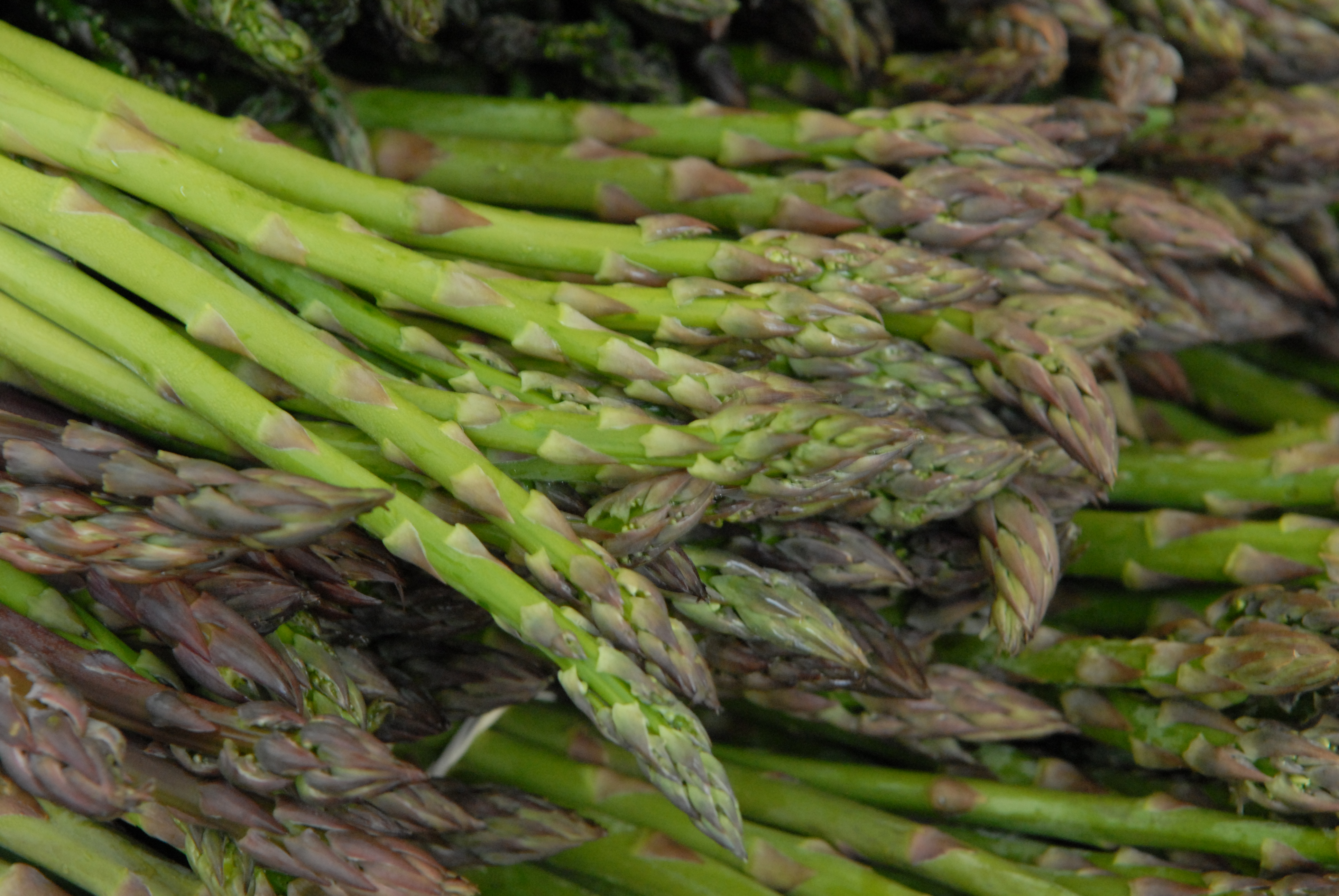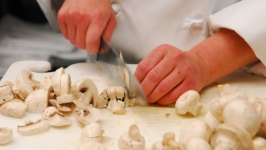Asparagus Recipes & Info
Discover | Michigan is an ideal place to grow asparagus. Our beach-like sandy soil produces more than 25 million pounds of asparagus each year. That much asparagus has a whopping economic impact of nearly $65 million annually to Michigan’s economy. No surprise that this ranks Michigan third in the nation for asparagus production. Asparagus is a long-lasting perennial plant—15 to 20 years—with a brief harvest season of only six to eight weeks.
Taste | Asparagus can be a difficult taste to describe. What one person may find mild and sweet, another may find earthy and bitter. Buying fresh, local asparagus will almost guarantee a great-tasting product and careful preparation will produce a bright green and slightly crisp result. Asparagus lends itself to many types of cooking, such as roasting, grilling, steaming and sautéing.
Fortify | Eat asparagus to keep your body working its best. Abundant in potassium, folate and vitamin A, asparagus is ideal for proper heart and cell function. Asparagus also has distinct anti-inflammatory and antioxidant nutrients such as saponin. But what is particular to asparagus is its fiber content. It contains the fiber inulin—a “prebiotic” that feeds good bacteria in our gut to improve digestive support. Inulin is often added to products such as yogurt, cereal and breads to improve the fiber content.
Preserve | Fresh asparagus shoots should be firm and straight with compact tips. Look for a medium green color with purple highlights and a small white, woody bottom. Although it’s best to use asparagus immediately, it can be stored for up to three days. Wrap asparagus in a damp paper towel and place in a plastic bag or stand asparagus cut-end down in one inch of water. Asparagus needs little preparation before cooking. Either break off the cut end of each stalk at its natural breaking point or peel the bottom third of each spear. Asparagus can be frozen for later use by blanching the spears for two to four minutes then placing in an ice water bath. Drain well, pat dry and place in a freezer-safe ziptop bag for six to nine months.








